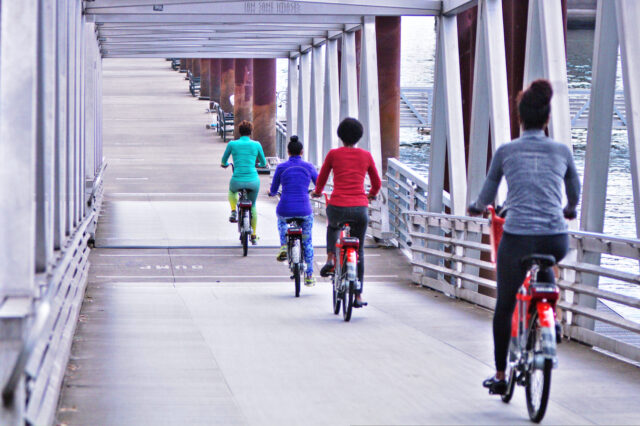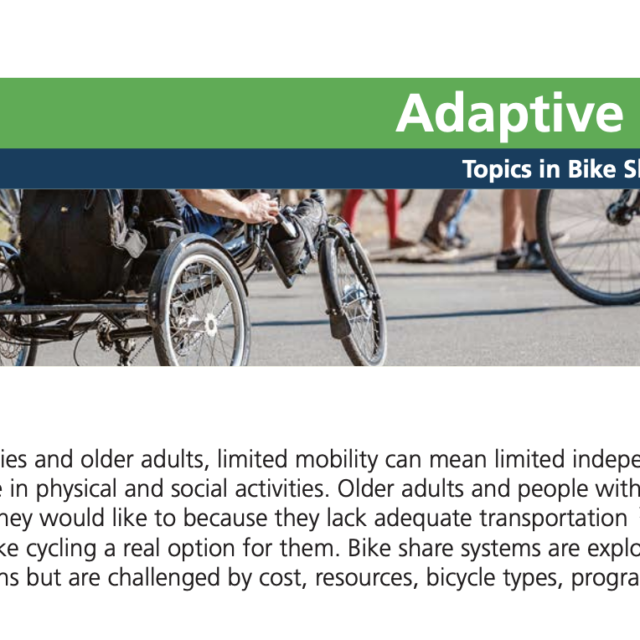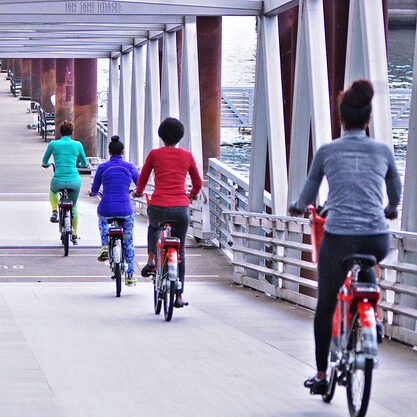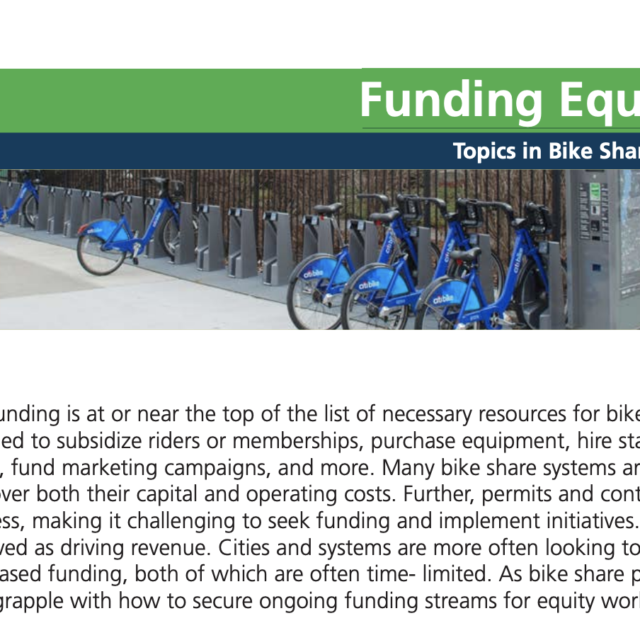This Equity Study Is as Important as Ever
by Kiran Herbert, Communications Manager
March 8, 2021
As bike share systems begin to ramp up for the season, we want to highlight some best practices from researchers at Portland State University.

(Photo credit: Ian Sane)
When it comes to research around making bike share more equitable, few institutions compare to the Transportation Research and Education Center (TREC) at Portland State University. In 2019, the center released a report comparing equity-oriented programs across several U.S. bike systems. Today, that body of research—The National Scan of Bike Share Equity Programs—is as relevant as ever.
BBSP covered the report when it was released but as bike share systems begin to ramp up for spring, we wanted to draw attention to it once again. Over the course of two years, the original report has helped cities and operators learn from the experiences of others, inevitably making bike share systems better nationally. The original report is 130 pages, however, so in order to make it more accessible, researchers created 10 briefs highlighting some of the key takeaways.
Below are summaries of those briefs, each with a linked download of a two-pager containing more information. They’re a must-read for anyone interested in creating bike share systems that work for everyone.
How to Break Down Barriers to Bike Share:
Articulating a specific equity policy helps to establish goals and build in accountability. This brief highlights current approaches, considerations, resources and tools for measuring and evaluating success.
2. Funding Equity Work
Equity programs are rarely, if ever, viewed as driving revenue. As bike share programs mature, systems will need to grapple with how to secure ongoing funding streams for equity work. This brief provides examples of how different systems do just that.
Running an equitable bike share system starts with equitable hiring practices and with the ongoing training of staff. This brief provides resources for operators committed to hiring a diverse workforce.
4. Marketing
How do you promote your system in a way that connects meaningfully with the community members you’re trying to reach? This two-pager highlights what a successful, equitable marketing campaign looks like.
5. Data Collection and Metrics
Well-considered data metrics are essential to identifying equity gaps and figuring out what’s working, what isn’t and why. This brief notes challenges many systems face and how data collection and analysis might be improved.
Community partnerships can help guide equity program development, organize connections and help with program delivery and assessment, among other things. This brief outlines how to make the most out of collaborations and partnerships.
7. Payment and Access Technology
Technology can serve as a key barrier preventing lower-income residents, immigrants and communities of color from participating in shared micromobility. This two-pager offers examples of ways to address common issues.
8. Integrating Bike Share and Transit
Systems should strive to make bike-to-transit trips easier and reduce barriers to utilization. The goal of this brief is to help in achieving transit integration by expediting transit and bike share transfers and expanding the reach of service.
9. Emerging Devices in New Mobility
As new shared micromobility devices continue to emerge, it’s critical that residents with the greatest need and the most barriers are able to access them. The brief provides considerations and resources for those wanting to grow system offerings.
Bike share systems need to account for older adults and people with disabilities. This two-pager provides examples of what some systems are currently doing, as well as considerations and resources for those looking to implement change.
The Better Bike Share Partnership is funded by The JPB Foundation as a collaborative between the City of Philadelphia, theNational Association of City Transportation Officials (NACTO) and the PeopleForBikes Foundation to build equitable and replicable bike share systems. Follow us on Facebook, Twitter and Instagram or sign up for our weekly newsletter. Got a question or a story idea? Email kiran@peopleforbikes.org.



